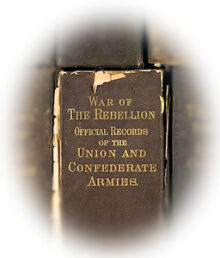“We agreed that it was Lincoln’s purpose at once to attempt the collection of the revenue, to re-enforce and hold Fort Sumter and Pickens, and to retake the other places. He is a man of will and firmness.”
WASHINGTON CITY, March 5, 1861.
General L. POPE WALKER,
Secretary of War, Montgomery, Ala.:
DEAR SIR: Judge Clay asked me before he left here to telegraph and write to Governor Moore any matters of importance. This was before the formation of the Provisional Government at Montgomery. Nothing has occurred since that request to justify a special dispatch, and now it appears to me that if there should be movements of troops or ships which come to my knowledge it would be better to send them to you. I shall do so on learning anything of importance in a reliable way. I may send the dispatch in a letter to Richmond to be telegraphed from there, or I may send it from here, as circumstances dictate.
The inaugural undoubtedly means war, and that right off. I have never doubted as to Lincoln’s views, and nothing would have changed them but the secession of the border States, who have not acted.
Mr. Crawford is here, and will proceed to execute the duties of his mission as soon as the new Secretary of State is installed. This will bet I suppose, to-morrow morning at furthest.
I was present last evening at a consultation of Southern gentlemen, at which Messrs. Crawford, Garnett, Pryor, De Jarnette, of Virginia, and Wigfall, of Texas, were present. We all put the same construction on the inaugural, which we carefully went over together. We agreed that it was Lincoln’s purpose at once to attempt the collection of the revenue, to re-enforce and hold Fort Sumter and Pickens, and to retake the other places. He is a man of will and firmness. His Cabinet will yield to him with alacrity, I think. Seward has, of course, agreed to the inaugural, and the pretenses of his conservatism are idle.
We believe that these plans will be put into execution immediately. I learn five or six United States ships are in New York Harbor, all ready to start. The United States steamer Pawnee came here the other day suddenly from Philadelphia, fully provisioned and ready to go to sea.
I understand that it is spoken of in Army circles to re-enforce Sumter by sending in men in whale-boats by night. This will probably be attempted in the first instance. After the garrison is re-enforced sufficiently to stand an assault, then the attempt may be made to fight the way up by five or six war vessels. Simultaneously or prior to this will be the change of programme at Pensacola by the United States, Pensacola being a point of infinitely more importance. Considering this and the evident purpose announced in the inaugural, would it not be expedient to prevent anything in the shape of dispatches, letters, or messengers from going to Slemmer or the other United States officers or men at Pensacola? By this you will have the advantage of knowing the movements from this point before the Government officers at Pensacola.
We shall endeavor to get hold of movements as soon as possible, and to advise you. Of course we labor under great difficulties in procuring early intelligence.
There is a general concurrence in the opinion that if any attack is made on Sumter it should be by order of the Government of the Confederate States and not by South Carolina alone.
Very truly yours,
L. Q. WASHINGTON.
![]()
Will you please show this letter to the Hon. Mr. Perkins, Secretary of the Navy?
I fear the present Virginia Convention will not pass an ordinance of secession unless a collision or war ensues; then public feeling will force them to it. There is a majority of old Federal submissionists, who got in by pretending to be resistance men.
